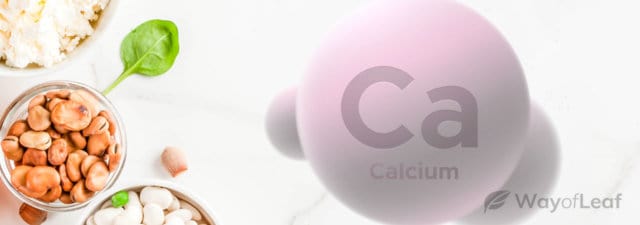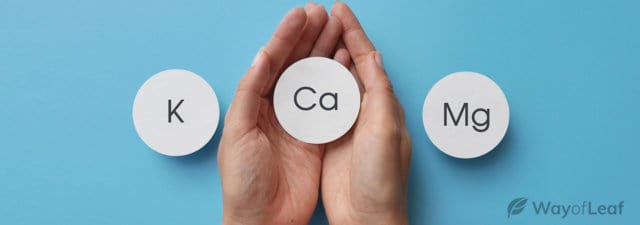Potassium is a mineral with numerous vital functions in the body. All tissue types require it to remain healthy, and it plays a crucial role in nerve signaling, muscle contractions, and heartbeat regulation.
Although this mineral is indispensable, the 2015–2020 Dietary Guidelines for Americans listed it as a “nutrient of concern.” This means that many people fall short of the optimal intake, which could lead to various complications. Therefore, a growing number of people are considering adding potassium tablets to their daily diets.
But while taking a potassium supplement might seem like a good idea, it is not necessarily safe for everyone. This article explores the science behind this nutrient, including its benefits, side effects, and the best natural sources.
What Is Potassium?
Potassium belongs to a class of chemicals known as alkali metals, alongside lithium, sodium, rubidium, cesium, and francium. These metals are soft and can be easily cut with a knife. They are also highly reactive.
Potassium is the eighth-most abundant element on the planet, forming around 2% of the Earth’s crust. However, due to its reactivity, it is never found free in nature. Potassium-containing minerals include sylvite, carnallite, langbeinite, and polyhalite. They are often found in ancient lake and sea beds.

The chemical symbol for potassium is K. It derives from the Latin word kalium, meaning alkali. The English word potassium derives from “potash” because it was first isolated from a compound called caustic potash (KOH). Caustic potash forms when potassium reacts with water. It is an important source of the mineral and is mined in New Mexico, California, Utah, and Germany.
Sir Humphry Davy discovered the metal in 1807, and a few months later, he successfully isolated sodium. Potassium and sodium have a complex relationship in the body, which we will explain in the following sections.
How Does Potassium Work?
Potassium is an electrolyte, meaning it carries a small electrical charge. This charge activates many cellular functions, including nerve signaling, muscle contractions, and heartbeat regulation.
Potassium works closely with sodium to perform these activities. Together, they control what is known as the membrane potential of cells.
Potassium primarily exists within cells, while sodium primarily exists outside. Specialized pumps move the chemicals in and out of the cells to maintain their “electrochemical gradient.” This process is necessary for physiological functions that rely on electrical stimulation.
Potassium is essential to numerous functions in the body. It carries a small electrical charge that stimulates various cell functions, including muscle contractions.
Potassium also helps to regulate cellular fluid levels. It moves nutrients into and waste products out of cells. It reduces blood pressure by relaxing the blood vessels and enhancing sodium excretion. Therefore, its effects counter those of sodium, which raises blood pressure by increasing the water content and overall volume of blood.
Because of these effects, experts recommend eating a diet containing more potassium than sodium. Unfortunately, the average American diet is the opposite and contains far more sodium than potassium. This increases the risk of heart disease and high blood pressure significantly.
Let’s look at the benefits of potassium and the side effects of consuming too little or too much.
Potassium Health Benefits
Potassium has numerous health benefits. Due to its ability to lower blood pressure, it reduces the risk of stroke and heart attacks. This is the primary reason it is so important to consume enough potassium daily.
Furthermore, potassium could protect the bones by increasing bone mineral density. Precisely how it does so is unclear. Some experts have hypothesized that it has an alkalizing effect on the body. This is thought to neutralize excess acidity caused by diets rich in meat and cereals, which may pull calcium from the bones. However, this is currently just a theory and remains unproven for now.
The mineral also reduces the risk of kidney stones by decreasing the amount of calcium passing through the kidneys.
Potassium Dosage
The Food and Nutrition Board of the National Academy of Medicine sets the recommended dietary allowances for nutrients. However, it has not found sufficient evidence to determine an estimated average requirement for potassium.
Therefore, it has estimated an “adequate intake” recommendation instead. It is currently:
- 2600mg for most adult females
- 3400mg for most adult males
There is also no set “tolerable upper intake level” for potassium. This is because, in healthy individuals, the kidneys effectively excrete any excess from the body. Small amounts are also lost in the sweat and stools, meaning that accidentally taking a potassium overdose is unlikely.
However, some medical conditions and medications can increase potassium to potentially harmful levels. This situation is known as hyperkalemia. Doctors may advise individuals at risk of hyperkalemia to eat a low-potassium diet.
Hyperkalemia
Advanced kidney disease is a major risk factor for hyperkalemia. When combined with a high potassium intake (over 4700mg daily), the following can also become risk factors:
- Compromised kidney function
- Non-steroidal anti-inflammatory (NSAID) use
- Potassium-sparing diuretic use
- Angiotensin-converting enzyme (ACE) inhibitor use
The symptoms of hyperkalemia are:
- Weakness
- Fatigue
- Nausea
- Vomiting
- Breathlessness
- Chest pain
- Palpitations
- Irregular heartbeat
- Increased risk of heart attack
Hypokalemia
Consuming too little potassium results in a state known as hypokalemia. Although most healthy people can control their potassium levels well, a minimum dietary intake of 400–800mg is necessary to compensate for normal daily losses.
Extra potassium is lost in situations like vomiting, diarrhea, and heavy sweating. Therefore, people who do not consume or absorb enough potassium may be at risk of hypokalemia in certain circumstances. Risk factors include:
- Inflammatory bowel disease
- Eating disorders
- Laxative abuse
- Severe diarrhea or vomiting
- Magnesium deficiency
The symptoms of hypokalemia include:
- Fatigue
- Muscle cramps
- Weakness
- Constipation
- Muscle paralysis (if severe)
- Irregular heartbeat (if severe)
Potassium Food Sources
Fruits and vegetables are good sources of potassium. However, it can be found in many other foods from both plant and animal sources.

In the United States, people get most of their potassium from milk, coffee, tea, non-alcoholic beverages, and potatoes. Some other potassium-rich foods include:
- Dried fruit (raisins, apricots, etc.)
- Legumes (peas, beans, lentils, etc.)
- Leafy greens (spinach, collards, beet greens, broccoli, etc.)
- Winter squash
- Avocados
- Bananas
- Cantaloupe
- Citrus fruit (oranges, grapefruit, etc.)
- Coconut water
- Tomatoes
- Nuts (cashews, almonds, etc.)
- Chicken
- Salmon
To ensure an adequate potassium intake, people should eat a variety of these foods daily.
Further information about the potassium content of specific foods is available on the official Dietary Guidelines for Americans website.
A Word on Salt Substitutes
Salt contains sodium chloride, so consuming too much can increase blood pressure. Therefore, some people use salt substitutes that contain potassium rather than sodium.
These products vary significantly in their potassium content, often containing anywhere between 440 and 2800 milligrams per teaspoon.
Individuals should check the amount of potassium in their chosen product and be aware of this when considering supplementation. This is especially important for those at risk of hyperkalemia (see above).
Potassium Supplement Options and Dosage
Potassium supplements are not necessary for most people as it is relatively easy to get an adequate intake from one’s diet. However, people at risk of deficiency may benefit from taking potassium tablets.
These products may also help lower blood pressure, although this should only be attempted under medical supervision. Generally, eating more high potassium foods and reducing sodium is preferable due to the risk of side effects from supplements.
Several options are available for those who do decide to take a supplement. Potassium chloride is the most common form, although some manufacturers use other potassium salts, such as potassium citrate or gluconate. Some multivitamin and mineral products list potassium iodide as an ingredient but note that this is a source of iodine, not potassium.
Most products contain around 80 milligrams of potassium per serving. Doctors may prescribe stronger products in specific circumstances.
Potassium Supplements Side Effects
Possible side effects of potassium supplements include:
- Nausea
- Vomiting
- Abdominal pain
- Diarrhea
Taking potassium with food can reduce the likelihood of these side effects occurring.
Aside from the above, at-risk individuals could develop hyperkalemia by taking potassium tablets.
We recommend consulting a physician or dietician before commencing supplementation to ensure it is suitable and safe.
The Bottom Line on Potassium
Although potassium can be found in many foods, many Americans do not consume enough of this essential mineral.
This shortfall, combined with excessive sodium intake, may contribute to the prevalence of high blood pressure and heart disease. Therefore, increasing one’s potassium intake is a fantastic way to maintain cardiovascular health.
Taking a potassium supplement may seem like a convenient shortcut, but side effects are possible. Furthermore, excessive potassium levels can cause hyperkalemia in susceptible individuals.
Therefore, it is preferable to increase potassium consumption by eating more fruits and vegetables unless instructed otherwise by a healthcare professional. Engaging in other healthy activities such as regular exercise and getting enough sleep will also help.









